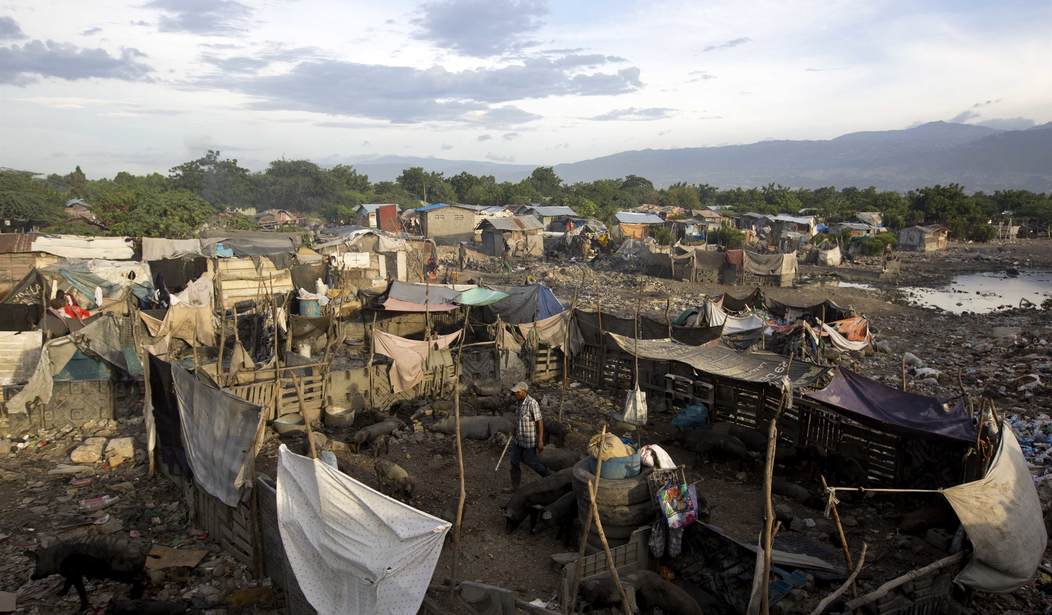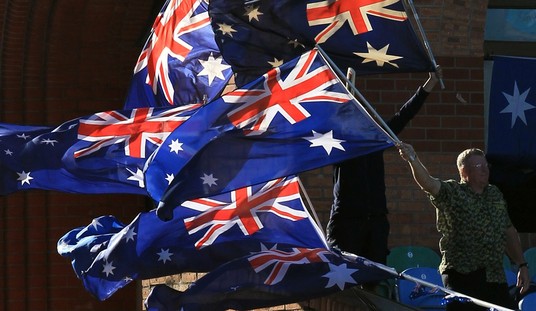The Biden administration wants to see troops in Haiti. Not U.S. troops, but those from our nation’s allies. The impetus is concern over a mass migration event in which people flee not only the devastating privation and decay there but ever-mounting violence from the gangs that continue to ravage the country.
Fox News reports that government forces have had some success against the gangs, but many troops are fearful of being out in the streets of Port-au-Prince and other cities. An already-desperate situation has been made worse over the years by an earthquake and the assassination of President Jovenel Moise in 2021. Since Moise’s death, the gangs have only become bolder and stronger. The concern is that the perfect storm is developing that will trigger a mass migration to the United States, and Haitian immigrants have already been coming through the southern border.
In an article for the New York Times, Natalie Kitroeff wrote that the number of immigrants from Haiti has increased fourfold in the past year. Daniel Foote, a former U.S. special envoy to Haiti, told Kitroeff, “That has always been the U.S. government’s biggest Haitian nightmare, a mass migration event. It’s already upon us; the next step becomes biblical, with people falling off anything that can float. We aren’t that far away from that.”
Kitroeff said that the Haitian government requested military aid last month to restore order. But she also added a quote from Ban Ki-moon, who was secretary general of the United Nations during the time that the U.N. maintained a presence there. Ki-moon said that due largely to a cholera outbreak brought by the troops, the country’s trust in the U.N. was “forever destroyed.” Also, the website Insight Crime noted in 2011 that during the U.N.’s term in Haiti, the agency was concerned about its security force’s connection to organized crime. And in terms of food for thought, the site Political Violence At A Glance featured a 2018 piece on the disturbing connection between human trafficking and the presence of U.N. forces.
Kitroeff’s article also stated that in addition to poverty and violence, the country is facing a catastrophic food shortage. The Biden administration has estimated that around 2,500 military or law enforcement personnel would be needed to at least open major arteries, but so far no other countries have expressed interest in participating.
Related: Venezuela Releases 7 Innocent Americans in Exchange For Two Drug Dealers
Years ago, my wife and I joined a group from our church on a mission trip to Haiti. It was the standard church mission trip. The group bagged rice, handed out food, put on little skits and sang songs, and moved gravel around for a construction project. In other words, we did exactly what the next church group would do when it arrived a week later. And as far as the “construction” project went, it really should have been a paying job that went to the locals. In the aggregate, we really did not accomplish anything. But we got our spiritual endorphin fix, I suppose.
There really are no adequate adjectives to describe the level of poverty in that country. People in the United States do not understand just how desperate things have been for so many years. Some people eke out a living in homes made of cinderblock, while others must content themselves with structures made of garbage or even sticks tied together. Drugs, trafficking, and other crimes are rampant there. Once, we passed a dead body lying in the street. Only the foolhardiest of missionaries stray from the group or the compound unsupervised.
At one point, I was riding in the back of a pickup with several of my fellow mission workers. They were openly mocking the people who crammed inordinate amounts of goods and/or passengers onto a motorbike or had to cobble together a number of disparate parts to move material, parcels, or even water. You have to be smart and resourceful to survive in a third-world country. People from the United States do not have the ingenuity, the skillsets, or the ability to navigate or even comprehend life in a failed nation.
Hanging over everything was the presence of the United Nations. The already busy roads were frequently jammed with motorcades, and I was told at the time that the Haitians were sick and tired of the UN, which did little if anything other than get in the way.
We went to an island village in the center of a massive lake near Fond Parisien. We were there to drop off vegetable oil, rice, and spaghetti to the residents and hand out snacks and water bags to the kids. When we got onshore, I noticed several military-style boats loaded with soldiers headed our way. The boats landed and out popped a contingent of the UN military force. They were from Brazil and every one of them looked like they were in their late teens or early twenties. They were pleasant enough but demanded to know who we were, where we were from, and what we were doing there. They also took pictures of each of us. Did I mention they were armed to the teeth with the latest in automatic weapons? Eventually, we were able to make ourselves understood and they let us go about our business.
The United States and the world have sent money, aid, and at one point, people with guns to Haiti. Private groups and individuals, both from churches and NGOs, have made the pilgrimage, dedicated to making a difference through teaching, medical care, trade school education, and delivering food and other supplies. And yet in all that time, the situation in Haiti has not improved. In fact, by all lights, it appears that things have taken a severe turn for the worse.
It is time to stop looking at Haiti as a source of virtue signaling or a place to be occupied for the good of its inhabitants. The problems in Haiti likely started at the top. They won’t be solved by juice boxes and snack packs, or by truckloads of international soldiers, at least not permanently. If that were the case, things would not be looking so dim there. Ideally, the solutions that could be applied at the bottom and in the middle should come from the citizens. And in that respect, church groups and NGOs could play a role in fostering that and in due time, return home.
But the issue with the government should probably be addressed immediately. A military presence may be needed in the short term, but there is a dysfunction that needs to be confronted if Haiti is to have a future.
An important question is cui bono, or “who benefits?” Why has the state of things in Haiti been allowed to deteriorate for so long and to such a degree, and who reaped the rewards from this situation?









Join the conversation as a VIP Member